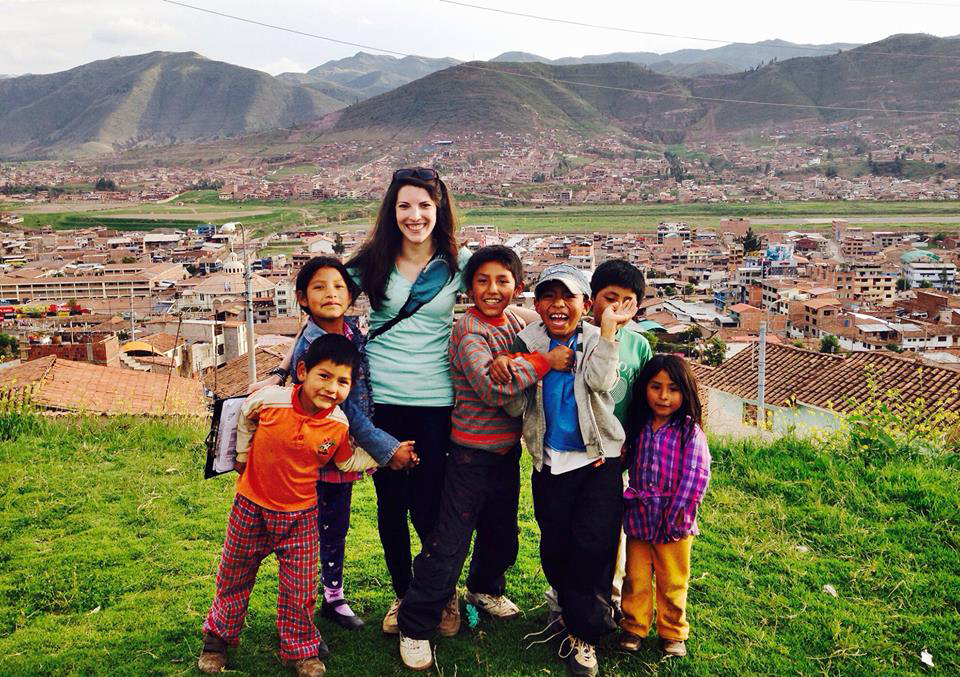Vaccine reminder company tested in developing world
By Kathy Hovis


A Cornellian’s nonprofit that helps parents in developing countries remember their children’s vaccination dates with bracelets has completed an initial study in Peru and Ecuador and is moving into trials and evaluations in three countries on three continents.
Alma Sana, founded by Lauren Braun ’11, is also in the midst of a crowdfunding campaign.
“The most rewarding part for me has been seeing the beaming pride on moms’ faces,” Braun said. “You can see how excited moms are to use the bracelets because, maybe for the first time ever, they are empowered with full understanding of their children’s vaccinations, and that knowledge enables them to be more engaged in their children’s health.”
Braun conceived the idea after spending the summer of 2009 as a volunteer at a rural health clinic in Peru, and she presented it on campus in the Entrepreneurship at Cornell’s 2011 Big Idea Competition. The social enterprise was awarded a $100,000 Gates Foundation grant in 2012 for initial field testing.
The bracelets bypass language barriers and illiteracy by using symbols to show mothers the vaccinations their children need and numbers to show when they are due. The bracelet is to be worn by a child from birth to age 4, with the goal that more children will live to age 5. Each year 4 million children die before age 5, and one out of five of those children dies of a vaccine-preventable disease, Braun said.
Braun initially focused on Peru and Ecuador because of her strong relationships with health ministries there, but “this year we’ve pivoted and focused on Nigeria, Pakistan and Colombia, where the impact of our innovation should be greater since vaccination coverage is worse,” she said. “Pakistan and Nigeria are two of three countries in the world that still have polio, but Nigeria is very close to eliminating it, and that would mean the African continent would be polio-free.”
The Phase I study confirmed that mothers increasingly used the bracelets as the study progressed and preferred them to other methods of vaccine reminders, including the government-issued vaccine card, Braun said. Phase II trials will test the effectiveness and cost-effectiveness of the bracelets, as well as percent changes in rates of vaccination completion, timeliness and coverage.
The biggest challenge for Alma Sana is raising funds for Phase II of the project. To find out more, visit Braun’s crowdfunding page or her website.
Kathy Hovis is a writer for the College of Arts and Sciences.
Media Contact
Get Cornell news delivered right to your inbox.
Subscribe